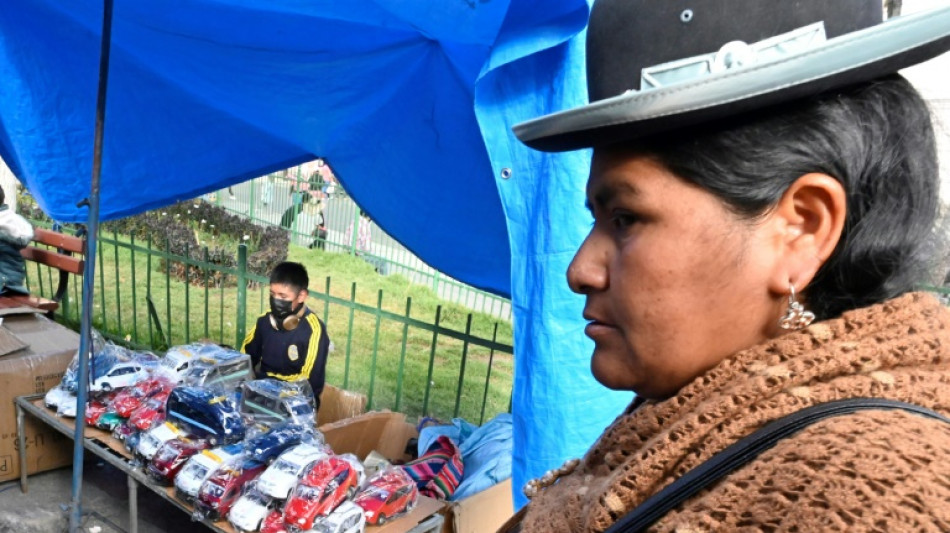

Bolivian inmates pass the time, earn money building miniature cars
In a prison in La Paz, inmate Julio Mamani beats a metal sheet from which he is building a tiny truck his wife will try and sell at a craft fair.
She will take it to the La Alasita market, where Bolivians flock once a year to buy scaled-down model vehicles, houses and other items that according to the Aymara Indigenous belief will one day bring them the same items, but in real life.
The tradition has proved a boon for prisoners like 59-year-old Mamani who sell their creations for between $10 and $30 apiece.
Mamani spoke with AFP from a cell that serves as a kitchen and workshop where he makes miniatures with three other inmates of the overcrowded San Pedro prison.
Built in the 1990s for 400 inmates, San Pedro today houses about 3,800.
Mamani, who did not want to talk about the criminal accusations against him, said he had not been to court for a year despite the law limiting pre-trial detention to six months.
Only about a third of Bolivia's 24,824 prisoners have been convicted of a crime, according to the ombudsman's office, which estimates overcrowding at about 168 percent.
Despite his predicament, Mamani welcomes the chance to learn a new skill and earn some money for his family.
He made about 120 miniature cars and trucks for his first market a year ago, he said, mainly from old milk cans his wife brings on visits with the permission from the prison authority.
The Alasita craft fair, Bolivia's biggest, opened Wednesday for three weeks, as part of a festival honoring Ekeko, a deity of abundance.
David Lujan, serving a 12-year-sentence for a crime he declined to reveal, makes motorcycle replicas mainly out of wood at San Pedro, where he participated in carpentry classes.
"It helps to keep busy" and to "earn a bit of money," the 29-year-old told AFP. He intends to pursue the skill further once he is free.
"I like art and miniatures. I feel proud," he said.
Prison director Juan Carlos Limpias told AFP the inmates and their ingenuity were proof that "nothing is impossible."
"They are doing impossible things despite the limitations of overcrowding," he told AFP.
T.McGilberry--NG



